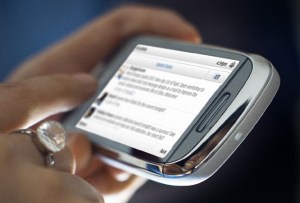
Finland’s Nokia—still the world’s largest maker of mobile handsets—announced a surprising strong net profit of €529 million (about US$733 million) for its third fiscal quarter of 2010. The results are no doubt very welcome to Nokia investors: for the same quarter a year ago, the company posted a net loss of €559 million. However, with the good news came some signs Nokia is still struggling to turn around its phone business to better compete with the likes of Apple, RIM, and Android: the company has announced it is “simplifying operations” in its Symbian Smartphones operation that will result in the company cutting up to 1,800 employees.
“Changes impacting personnel are always difficult,” said Nokia executive VP of human resources Juha Äkräs, in a statement. “The announcement today is the result of careful evaluation and planning; the plans have now been reviewed and endorsed by the new management.”
Nokia also announced it plans to change over to an integrated line of Ovi services that are available across the company’s full range of devices, rather than providing end-to-end line for particular services.
Despite the strong third quarter results, Nokia is pinning much of its hopes for the fiscal year on the fourth quarter, then sales from its new Symbian^3 N8 and C7 smartphones will beging to tally up, and newly-installed CEO Stephen Elop—the first non-Finn to run the company—begins to implement changes.
One of those changes is that Nokia is planing to unify development environments for Symbian and the forthcoming MeeGo open source platform, developed jointly with Intel. The move will see Nokia’s Qt framework serving as the sole development platform for both Symbian and MeeGo devices. Nokia also plans to support HTML5 on both Symbian and MeeGo-based devices, and the company will be using the same tools as third-party developers: Nokia says it will develop all its own future applications using Qt to provide a more consistent experience across devices and services. As a result, Nokia says it will no longer refer to monolithic Symbian releases like Symbian^3 and Symbian^4: instead, the platform will be developed in a process of “continuous evolution.”
Nokia’s changes to its Symbian smartphone organization and development process are clearly intended to help the company be more nimble in the face of strong competition from other smartphone makers. However, the moves come just as the Symbian Foundation unexpectedly lost its executive director and the platform has suffered major defections from handset makers like Sony Ericsson, LG, and Samsung. Nokia is betting heavily that the first MeeGo handsets—due to hit the market in 2011—will put the company front-and-center in the smartphone business…but at that point, the iPhone will have been on the market for nearly four years and Android will be even more-entrenched in the market.


